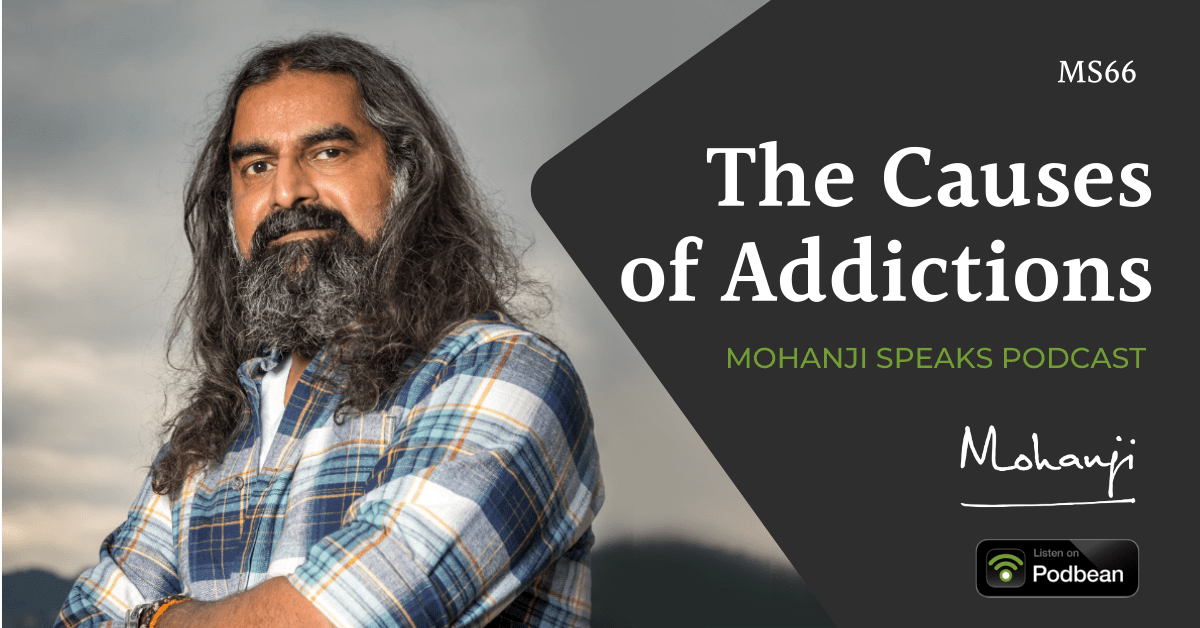Welcome to Mohanji Speaks.
Hello, my dear friends. How are you doing today?
Today, I was thinking of talking about addictions; numerous addictions. And many of us do not know that we have addictions, one way or the other. We do not remember, or we do not realize that we have addictions.
What are these addictions? Where have they come from?
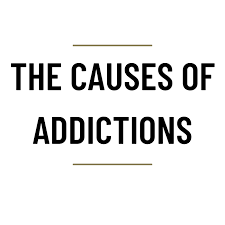
This is the human need to create comfort zones. Addictions add to our comfort zones or addictions create comfort zones.
In a way, addictions have come out of our insecurities.
We have certain insecurities and to compensate or cover them up, we have acquired certain addictions.
Even compulsive purchases are addictions. People go shopping, on shopping sprees. 80% of the things they buy; sometimes they don’t even touch later. But they do buy. Why do they buy? They’re trying to cover up something, some boredom inside. Some deficiency; some insecurity. Something they’re trying to cover up.
Likewise, addiction to relationships, we have seen patterns happening in relationships. They keep reappearing; they keep coming and going; we still go with it, and we still flow with it. The same pattern keeps repeating. Why do we go through all this? This is because, inherently, inside, we are insecure.
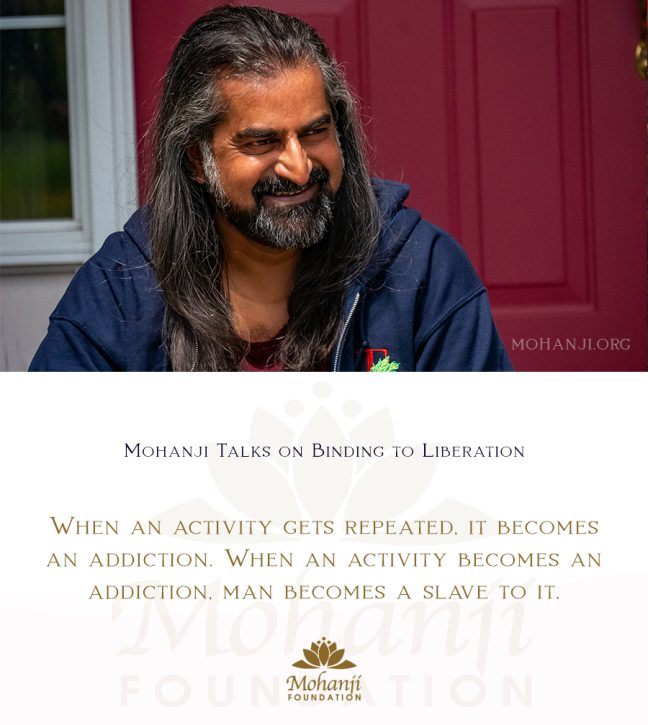
I always believed that the root cause of our insecurities has come from our inherent instinct called survival instinct. All the species have it; every species have a survival instinct. That’s why most of the beings of all the species, concentrate more on acquiring food each day.
When they wake up in the morning, or whenever they are awake, they are hunting for food, they are going around for having a meal. This is part of their survival instinct. And the same survival instinct causes insecurities. What if there is no food? What if there is no water?
For human beings, because we are intelligent beings, we have taken it a notch higher. We have various needs and requirements, such as the Internet.
Imagine a world without the Internet today – impossible right? You can’t think about a world without the Internet. Can you imagine a world without telephones, without televisions, without programs, without entertainment? We can’t, right? But we have lived like this, a few centuries ago. Three centuries ago, the people of that time could not have imagined how the Internet would have united the world as we do now. This is the reality.
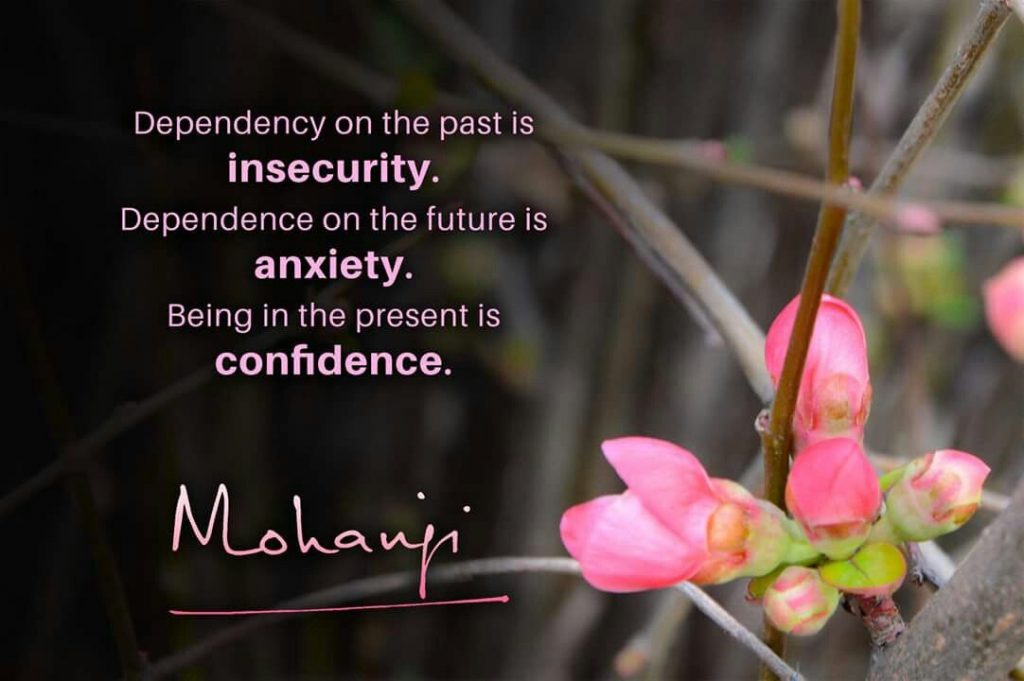
Reality keeps changing, and so are our insecurities. We have our existentialistic issues all the time; we have faced it time and again. And each time when we face it, we think, “Okay this is over now, that’s fine, settled”, then another thing comes up. So, it’s like a wave; different situations arise, different situations create different effects on us, and we somehow survive each.
Thus, we grow; thus, we evolve. But the basic nature is not changing; the basic instincts are remaining the same. And we express them as compulsive habits, addictions, and various things similar to that.
Addictions have also to do with escapism.
We tend to escape from our reality to an imaginary world. It’s like, closing our eyes and imagining there is no world outside. This situation, which you have created or which you are experiencing, sometimes gives pains, sometimes pleasure. It’s a mixture of pain and pleasure, but an addiction gives you a permanent kind of solace. That’s why we go into compulsive habits and addictions.
Whether the situation is good or bad, when I indulge in alcohol or cigarettes, or any other kind of addictions, I feel better. This is an artificial feeling we get. So, various addictions, all people in the world have addictions. Nobody is immune to it. These are compulsive habits for everybody; it is not to be blamed. Instead, it has to be understood.
Now, take one more step further.
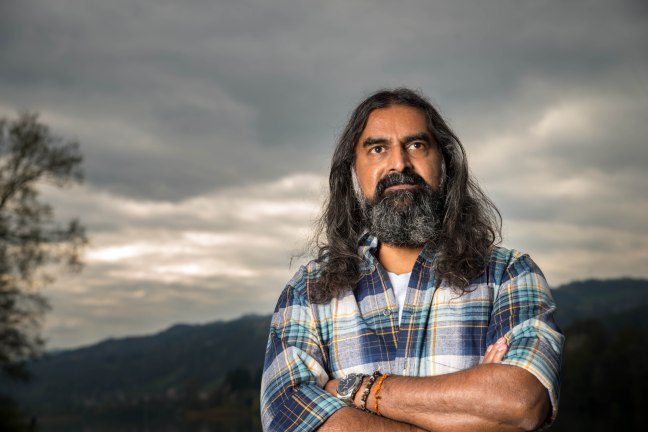
How much do you need from Earth?
This is also an illusory feeling – you need bigger houses, many cars, so much of furniture, so many other things. But how much of it would you use? When you have much and more, it becomes a burden, at least in your mind. “Oh, I have to take care of all this, I have to now secure these from getting stolen. I have to take care of them, the whole life.” These kinds of fears bind us to materials, binds us to positions, binds us to possessions; they are also addictions.
We know that we do not need all these things to be happy; we need only minimum things to be happy, like a good bed to sleep, some good food, and a vehicle to travel. These are the minimum things, which will keep you happy and satisfied, even though you are a millionaire.
What you really need for existence is essential; but what you greed for – the more and more of everything – is an illusion.
You don’t experience them. You amass them, but you hardly experience them. When you have ten cars, you may drive one car, maybe once a month, but there is no utility. There is no need.
If we are able to clean up our clutter from our house, from our mind, all these addictions can have some kind of solace. Remove the clutter. The lighter you are, the easier life is. So, having so much is not the thing; having quality is the thing. Quantity is not the point here. And everything you do, let it have its quality. Everything you want should have quality. Unless you actually experience what you have, you will not know the quality. So, it’s important, whatever you collect, whatever you amass, make sure that it is experienceable.
Five mobile phones will not give you any more pleasure than one phone. So, one mobile phone is good enough. One car is good enough, and one house, one nice bedroom. Like this, even if you have money, wealth, and you can afford it, go for the basic minimum. So that whatever you have is clean, and you can maintain it well. You wouldn’t feel too possessive about that.
To probably prove to society, we amass so many things, big houses and cars and stuff, so that we have a social status. But one thing you should remember is that you also have the burden of all this wealth. It is important that we understand our addictions, our deficiencies or insecurities and slowly detach from them, it takes time.
First is diagnosis then comes a cure.
I leave this thought with you today. Think about it, we can discuss it, but please think what you really need and what you greed for.
Lots of love.
This is Mohanji for you.

Listen to an excerpt of the podcast here
Transcribed by Ulla Bernholdt
Proofread by Rekha Murali
Subscribe to Mohanji Speaks daily podcast

